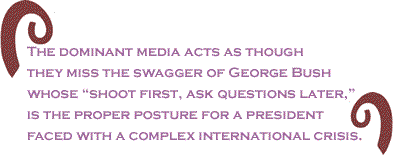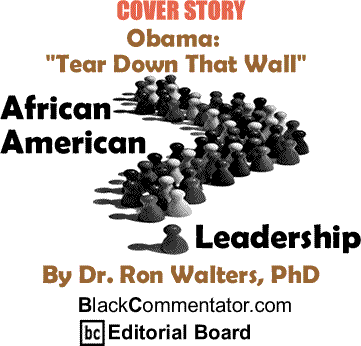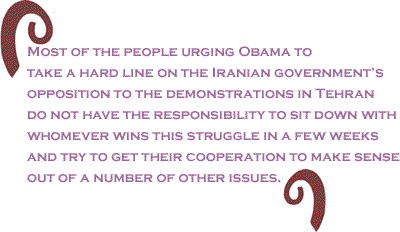
|
|||||||||||||||||||||||

Custom Search
|
|
 |
|
In the heat of all the evaluations of the Administration of President Barack Obama, we should not let this moment pass that connects his speech in Cairo to the progressive movement in Iran. I don’t agree with Benjamin Netanyahu, the Prime Minister of Israel very often, but on “Meet the Press,” Sunday June 21, he answered the question of whether Obama should give more credibility to the freedom movement in Iran by saying that Obama began the process with his Cairo speech. It would be easy to miss the important impact of Obama’s speech, because the media is focused on the issue of whether his response to the demonstrations opposing the attempt by the forces of Mahmoud Ahmadinejad to steal the election has been tough enough. In fact, the dominant media acts as though they miss the swagger of George Bush whose “shoot first, ask questions later,” is the proper posture for a president faced with a complex international crisis. Most of the people urging Obama to take a hard line on the Iranian government’s opposition to the demonstrations in Tehran do not have the responsibility to sit down with whomever wins this struggle in a few weeks and try to get their cooperation to make sense out of a number of other issues. Yet they will also be poised to criticize him if he isn’t able to do so. My sense is that his response has been measured and accurate: assess the events and react according to what it gives you, not beyond what is required. The recent Iranian election was immediately contested by expert foreign and domestic observers, as the government announced that the incumbent had won with 62% of the vote and his opponent, Mir-Hossein Mousavi former Prime Minister, had received 33%=2 0in a turnout of 32 million voters. Mousavi quickly announced that he would not surrender to “this charade” since his progressive movement had organized and contributed to the 80% turnout of the electorate and his sources had him at 58-60% of the vote. In 2005, there may also have been some government influence in the election, as pre-vote polling placed Rafsanjani, former President, and Mostafa Moeen in first and second position, but the vote tallies from the government had Ahmadinejad and Mehdi Karroubi in second and third place. Ahmadinejad won in the 2005 runoff by a 62% of the vote, the same percent he had in the 2009 election, with a turnout that was 8 million more than in 2005.
Nevertheless, Reaganist truly believe that when Ronald Reagan stood at the gates of the Berlin wall on June 12 (the same day as the Iranian Election) 1987 and shouted to President Gorbachev to “Tear down this wall” that ended the Cold War. Well, if that is so, then we can also believe that when Barack Obama extended a powerful open hand for a new beginning to the Muslin world in Cairo that moment ignited hope, especially among women, youth and the middle classes for a new future. As several credible observers have noted, this turn of event in Iran is something fundamentally important, but whether it lasts or extends to other areas of the Middle East will be critical to follow - even if the major media does not. BlackCommentator.com
Editorial Board member Dr. Ron Walters is the Distinguished
Leadership Scholar, Director of the African American Leadership
Center and Professor of Government and Politics at the University
of Maryland College Park. His latest book is: The Price of Racial Reconciliation (The Politics of Race and Ethnicity)
|
|
Any BlackCommentator.com article may be re-printed so long as it is re-printed in its entirety and full credit given to the author and www.BlackCommentator.com. If the re-print is on the Internet we additionally request a link back to the original piece on our Website. Your comments are always welcome. eMail re-print notice
If you send us an eMail message we may publish all or part of it, unless you tell us it is not for publication. You may also request that we withhold your name. Thank you very much for your readership. |
|
| |
|
| June
25 , 2009 Issue 330 |
|
| Executive Editor: Bill Fletcher, Jr. |
| Managing Editor: Nancy Littlefield |
| Publisher: Peter Gamble |
| Est. April 5, 2002 |
Printer Friendly Version
in resizeable plain
text format or pdf
format. |
| Frequently Asked Questions |
 |

|
 |
 |
 |
| |
| |





































